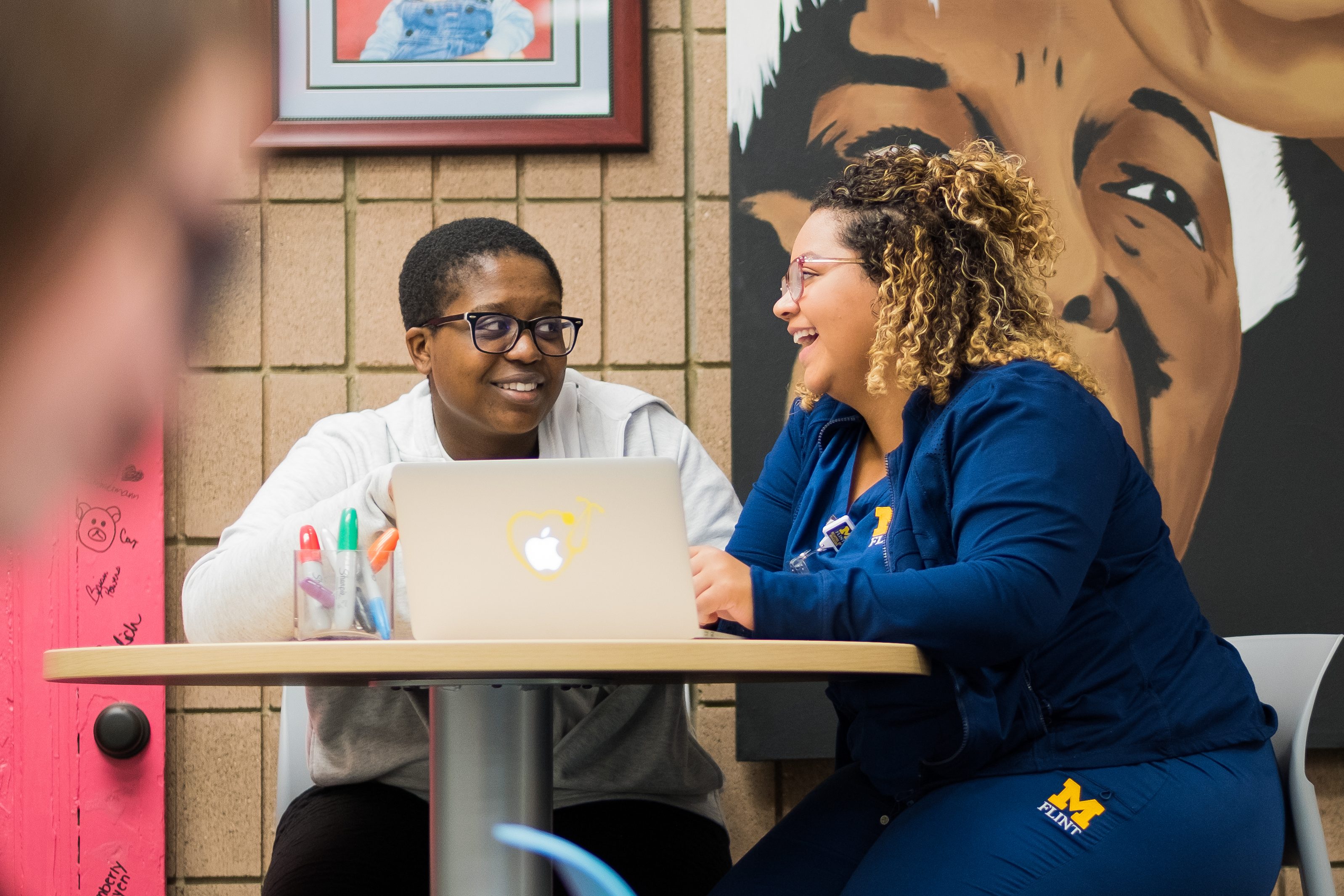Center for Gender and Sexuality peer educators raise awareness

During the fall semester, UM-Flint peer educators taught more than 300 fellow students about sexual violence prevention.
The peer educators are trained by the Center for Gender and Sexuality (CGS). The students lead workshops and educational events for their peers on topics such as bystander intervention, consent, and sexual assault.
"The work we do actually affects people in a positive way, and brings about change," said peer educator Niyah Lewis.
The scope of the program will expand this year, thanks to an increase in grant funding. The center received a $125,175 Michigan State Police grant to support the peer education and sexual assault prevention programs for 2019, said CGS director Heather Johnson. This is nearly triple the previous high dollar amount the programs have received from this grant source in the past, she said. The center came under its current name late last year with the merging of the Women's Educational Center and the Ellen Bommarito LGBTQ Center.
"The new grant will enable our current programs to have a greater reach and will provide funding and student staff to offer more content on requested topics," said Johnson, referring to subjects such as healthy masculinity and inclusive sex education. The center also plans on offering sexual violence prevention workshops to area bartenders. Peer educators will also be able to work more hours per week through the grant.
Regardless of the funding amount, the team of ten students who serve as peer educators play a critical role in creating awareness and a positive culture on issues related to sexual violence prevention and bystander intervention, Johnson said.
"Peer education fosters an open and safe environment for learning that can be particularly important when discussing behavioral, psychological, or biological topics that relate to gender and sexuality that seem more personal and nuanced," Johnson said. "Individuals and groups are often more likely to ask questions, have a dialogue, and discuss new ideas or information when they are having a conversation that is with others that are similarly situated."
That ability to connect with fellow students has made a big impact on Lewis. She is studying healthcare administration, with a minor in public health, and hopes to pursue a career in sexual violence prevention because of what she has learned as a peer educator.
"I have a deep passion for this work and want to help more people," she said.
The students lead an eight-week Sexual Violence Prevention and Intervention Certificate Program at the university, which includes a 90-minute-session every week. Participants include students, staff, and community members. The students, who also designed the program, also run workshops for various student and university groups, and develop other events.
Every Monday, the peer educators meet to brainstorm and update each other on projects.
Sarah Devitt, the sexual assault awareness and prevention program manager within the center, said peer educators are improving awareness and the mindsets of people beyond campus, as well, including friends and family.
Peer educator Nina Patterson said being equipped to help others within the community is what makes the job special.
"It's been super great. They put a lot of responsibility on us to talk with and educate our peers, but we also plan and write the lesson plans," said Patterson. "We are part of what the center is from start to finish. We do have a hefty responsibility and we are effective at what we do."
Related Posts
No related photos.
UM-Flint News
The Office of Marketing & Communications can be reached at [email protected].